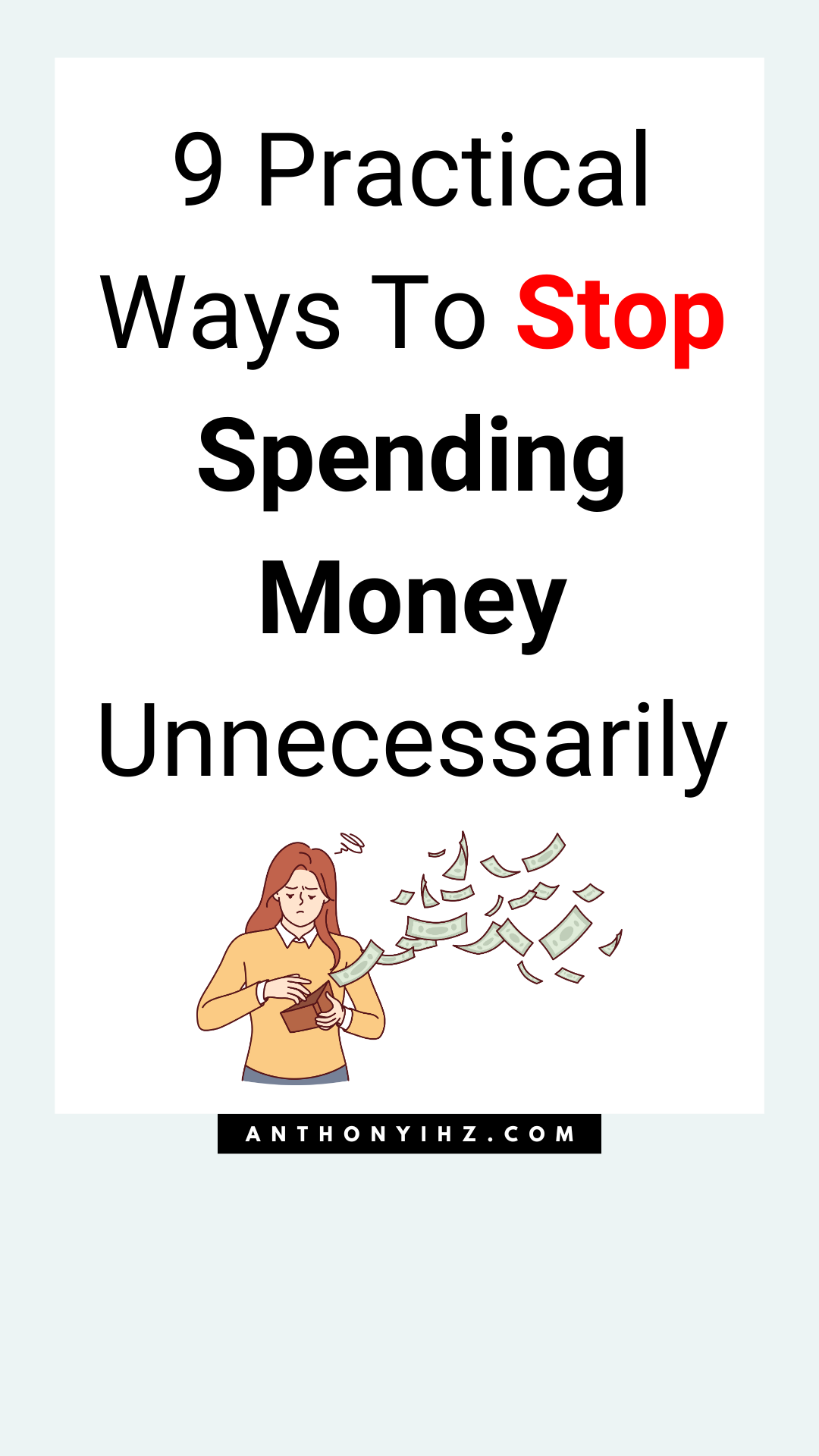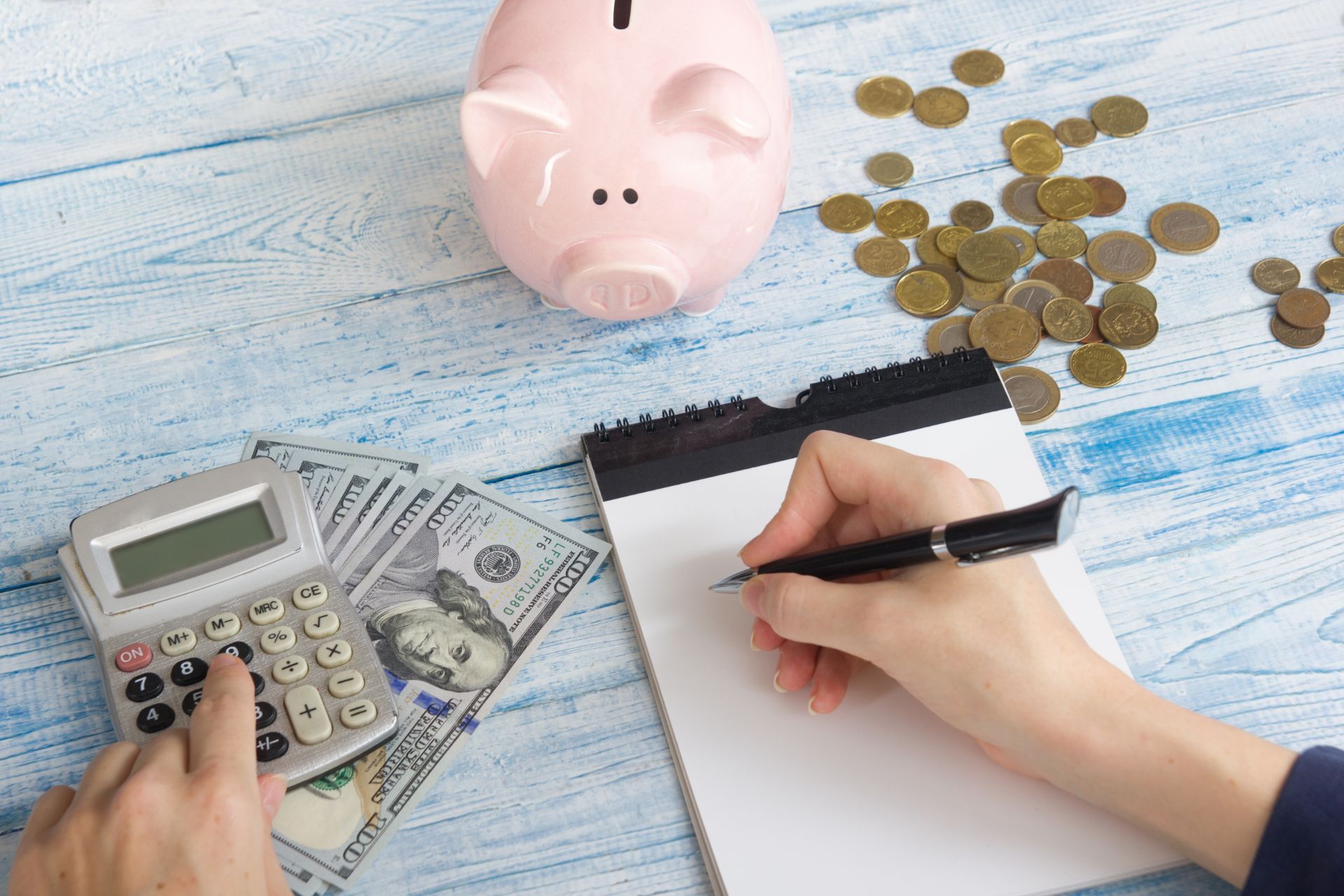
Without a source of income, you can’t survive. You need a job, a business, or any other income stream to live a normal and comfortable life. Now what this means is that there is always a need for for us to spend money. That’s why we must have a source of income.
From paying utilities to buying groceries every week, you can’t avoid spending cash. But interestingly, what if you know how to stop spending money unnecessarily? That means cutting down on your expenses to drastically limit your spending. There’s no denying that this will impact your financial situation in an amazing way.
When I started curbing my spending, I realized I could free up extra money to contribute to my savings goals. I looked at the various spending categories in my budget and found a safe way to reduce the costs. Although it looks really simple, this one thing helped me to reach my financial goals faster.
This post will discuss several ways you can evade irrelevant expenses and save more money in your bank account. Let’s quickly look at how this works.
What Are The Things You Should Stop Spending Money On?
You should stop spending money on anything that is not a necessity. If it isn’t a regular monthly bill like rent, utilities, childcare, transportation, food, and other essential expenses, you should cut it out of your budget.
For example, you shouldn’t spend your hard-earned money on subscription-based services you rarely use. Simply ditch them because they slowly eat deep into your finances.
4 Reasons You Can’t Stop Spending Money Recklessly
The first time I tried learning how to stop spending money unnecessarily, it was quite difficult. I was willing to reduce my expenses, but the expenditure kept getting bigger. The reason for this was that I had failed to address the background problem: identifying the wrong places where my money went.
Here are some reasons you don’t know how to stop overspending:
1. You Spend Too Much Time On Social Media
If you don’t know how to stop spending money recklessly, chances are that you spend too much time scrolling through your news feed on social media.
Now here’s what you must know. There are millions of businesses on social media: Instagram, Facebook, Twitter (now known as X), and even Snapchat. These brands often run targeted ads to prospects based on their interests on the social media platform.
This means if you love clothing items a lot, you tend to see various ads from clothing brands trying to sell to you. If you aren’t bent on curbing your spending, you can easily take out your debit card and pay for an item online. This is exactly how social media can make you spend your hard-earned money unnecessarily.
2. You Don’t Monitor Your Spending
No matter how much money you make, you’ll never be in control of it if you’re not keeping track of your expenses. You will, in fact, always feel as though your money is the one in charge: the one sending you on errands.
This is one thing that leads to paycheck-to-paycheck living, and that’s definitely a miserable financial situation to be in. Besides, if you find yourself wondering every month where all of your hard-earned money is going, it’s time to start budgeting and tracking your spending!
With a good budget, you can track your expenses every month.
3. Shopping Is Your Hobby
Although some people like making jokes about being shopaholics and excessive spending, it’s a real condition that people struggle with. It’s sometimes called retail therapy. This is a situation where people find pleasure in shopping and spending money.
The issue for most of us is that we spend money impulsively just because we want something right now. Before we consider what’s in the checking account or our financial goals, we see something and buy it.
It may seem like you get instant satisfaction from doing this, but that’s not the case. There’s no way having a shopping spree will genuinely cheer you up after you can literally see the money in your bank account disappear before your very eyes.
4. You Pay With Credit Cards
Another common reason people don’t know how to stop spending money unnecessarily is that they use their credit cards a lot. It may go unnoticed, but using plastic to make payments—whether it is a credit card—makes you spend more money (who doesn’t enjoy using other people’s money for purchases?).
It’s high time you knew this: using a credit line to purchase things makes it simple to overspend because you are unable to see the money leave your hand.

How To Stop Spending Money On Unnecessary Things
Are you fed up with your overspending habit? It’s time to turn a new leaf. Here are helpful ways you can learn how to stop spending money wastefully:
1. Create A Budget That Works For You

Do you regularly draft a monthly budget? When I say budget, I’m talking about a simple financial plan for how you spend and manage your income.
My preferred type of budget is the zero-based budget, which essentially entails that you have to tell every single hard-earned dollar where to go since you have decided on the specific amount of money that will go toward your spending and savings. This is a working budget that millions of American households use. It helps you to be intentional about your spending habits.
However, give yourself some leeway if this is your first budget. To make things easier, you can use EveryDollar, a free budgeting app that helps you plan for your income within minutes. This app allows you to not only build a budget, but track your spending and monitor your debt and savings progress each month.
2. Focus On Your Essentials

The key to getting out of debt and staying out of debt is creating and sticking to a monthly budget. If you’ve never created a budget before, you may be shocked by how much money you spend every week (or even month) on small expenses like lunches, coffee, or that secret snack shop in the office.
Whenever you build a budget, ensure you focus on your Four Walls: Food, Utilities, Transportation, and Shelter. These are your essentials, and once you identify them, it becomes clear that you cannot make compromises in these areas.
This doesn’t mean you won’t spend money on other areas that may be important. However, prioritizing your Four Walls will prevent a lot of wasteful spending. This is one of the top tips on how to stop spending money unnecessarily.
3. Don’t Shop Without A Goal

Everybody has been there. Let’s say your toothpaste and bathing soap are finished. So you head to Target in a hurry, keeping those two things in mind. However, as soon as you walk through the door, you can’t help but gravitate toward the dollar section and fill your basket with a ton of brightly colored phone chargers and kid-friendly water toys.
Initially, you needed just two items. Now you’re spending way more than you budgeted by making impulse purchases. This is why many people don’t know how to stop spending money unnecessarily. They shop aimlessly.
Is it truly the intention of anyone to become distracted while out purchasing necessities? Most likely not. However, if you find yourself in this situation all the time, you may want to deliberately stay away from the places that encourage excessive spending.
4. Avoid Dining Out
One of the simplest ways to save money is to adjust how much you spend on food. And as everyone knows, eating out can get pricey very quickly. Four times a week at $20 for lunch adds up to $80 a week (or $320 a month)! With that type of money, just think how soon you could pay off your debt!
Here’s a brilliant way forward: plan your weekly meals, prepare a list before you go grocery shopping, and follow it rather than going to the store and aimlessly browsing the aisles. Don’t hesitate to leave the kids (or your spouse) at home if doing so would allow you to save even more.
Lowering your total food expenses is possible when you plan your meals in advance. It’s one way you can learn how to stop spending money on unnecessary things.
5. Avoid Sales

Who doesn’t want a good bargain when buying something? I am certain that I do! Retailers are familiar with their clientele and understand the allure of a well-positioned, eye-catching sales rack. However, you must ask yourself how this is affecting your savings goals and finances in general.
We are sometimes tempted to buy something when it’s been sold at a cheaper price. Of course, it seems like you got a good deal. But do you actually need what you’ve just purchased? That money could have been put toward your savings accounts.
Creating a shopping list before you purchase anything will help you steer clear of these shopping pitfalls. When you visit your regular retail store, exercise some self-control. If it’s on sale but not on your list, avoid it. This is one of the effective ways to stop overspending.
6. Pay Down Debt

You must make a firm commitment to never run into debt if you want to really learn how to stop spending money unnecessarily. Whether it’s a mortgage or credit, debt payments eat deep into your monthly income. Don’t forget you are obligated to make interest-only payments on the loan or credit card until it is paid off. Your finances are “tied up” until you become debt-free.
You may feel more secure about your finances because almost everything can be financed or borrowed as of today. However, this isn’t true. Even though it gives you the impression that you can afford things such as a new car or a beautiful house, the truth is that you cannot truly afford something if you do not have the money to pay for it.
If you currently have existing debt balances to pay off, make it a priority. Avoid wasteful spending so you can free up enough money to pay down your debt faster.
7. Understand The Essence Of Delayed Gratification
Delayed gratification is a very important concept of life we must understand if we want to learn how to stop spending money unnecessarily.
When you want to achieve something tangible in the future, you need to overlook the pleasures of today. For example, saving money for retirement is one of the things that can teach you delayed gratification. You should know fully well that if you keep spending money recklessly, your future isn’t financially secure.
Hence, cut down on your living costs as much as you can. Avoid impulse buying. Save your hard-earned money diligently. When the time comes, you’ll be thankful for making this decision.
8. Try To Reach New Goals
The secret to knowing how to stop spending money on unnecessary things is to improve your everyday financial practices.
Sometimes you just have to challenge yourself to achieve remarkable feats. For instance, try to spend your income on only your essentials for a couple of months. You’ll surprisingly realize that you don’t even need to spend on frivolities in the first place.
You’ll also recognize that there are items that you would love to have but don’t really need. Do you enjoy going to the gym because it keeps you physically fit? Hold on to it. Does going to the chiropractor once a week help you maintain optimal back health? Hold on to it. Spending money isn’t a problem if it fits into your budget and doesn’t put you into debt.
9. Learn Some Frugal Tips

At this point, you must have understood that learning how to stop spending money unnecessarily means you have to be frugal. Frugality is a lifestyle that requires you to constantly look for ways to cut down on costs. As long as it’s not a necessity, you just have to ditch it.
Start by looking for free alternatives to the premium services you currently use. For example, if you are a Netflix subscriber, you can cancel your subscription and find a free option. There are dozens of free sites like Netflix that won’t require you to pay any monthly fee. Check them out to save money now.
Quick Summary: How To Stop Spending Money On Unnecessary Things
Thinking before you spend is a brilliant way to handle your income. You have to reevaluate your buying decisions and methods for managing money. That’s how you can identify if you are doing anything wrong.
If you are used to budgeting your income every month, that’s commendable! Don’t stop. However, consider checking for loopholes. Examine the budget to track your expenses and find areas where you could be splurging too much cash. That’s how to stop spending money unnecessarily.
Pin this for later!


